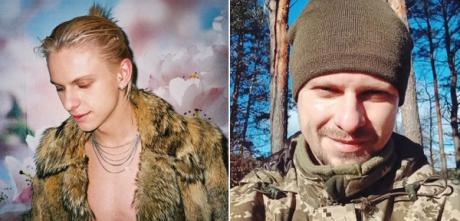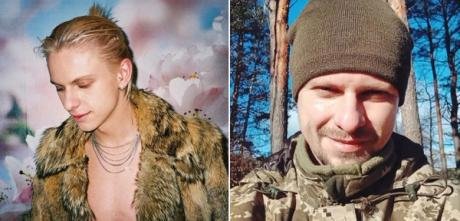
Artur Snitkus, a Ukrainian artist, musician and stylist, was killed in combat on the front near Donetsk in eastern Ukraine this month amid the latest Russian military offensive in the region. He was 36.
Snitkus’s death, first reported on 7 June, comes as fighting intensifies in eastern Ukraine. During this week’s G7 meeting in Italy, Western powers pledged additional financial and military support for Ukraine. Meanwhile, Russian president Vladimir Putin made a ceasefire offer that would involve Ukraine ceding enormous swathes of territory. Russia annexed part of the Donetsk region in September 2022, seven months after Putin sent troops into Ukraine. Ukrainian officials denounced the offer, claiming Putin is “afraid of a real peace”. The Russian president said in comments on Friday (14 June) that he would not consider any negotiations with Kyiv until Ukrainian forces fully withdraw from those regions.
Natalia Martynenko, a cultural coordinator, described Snitkus as an “icon of [the] Ukrainian queer underground” in a Facebook post earlier this week. She added: “Your beautiful voice was always full of energy and empowerment, which we keep in our hearts forever in the memory of you.”
The artist was known especially for his electronic music. In commemorating his life, many posted recordings of his performances on social media. His music was included in a 2022 compilation called SESTRO by the Odesa-based label System, released to support Sphere, a Kharkiv-based organisation that helps women and LGBTQ+ women in eastern Ukraine.
The cause of LGBTQ+ rights has advanced in Ukraine since the war began, and some conservative attitudes have been changed by the number of LGBTQ+ individuals who have taken up arms to fight Russia. In November 2023, Russia’s supreme court classified “the international LGBT movement” as “extremist”.
Snitkus was buried with a procession and military honours in Ternopil, his hometown in western Ukraine. Multiple priests and many of his friends attended. One of the latter, Tetyana Semus, told Suspilne, Ukraine’s national public broadcaster, that “Artur was a holy man” who would not have approved of the formalities.
“We decided that Arthur would definitely like some kind of performance, some kind of show,” Semus added. “We wanted it to be as bright as it was. We wanted there to be fireworks. It seems to me that it relieved the heavy funeral atmosphere and now we see that the cemetery looks a little different. I’m sure that Arthur would approve of it.”










